Eric Toennis
Read MoreNatural

Eric Toennis
Read MoreA special online release of the Gabba Gabba's third issue. Print out next week in and around Bozeman, MT. Enjoy!
Cooper Malin
Read MoreJordan Finn
Read MoreTara Donohoe - Gabba Gabba
Read MoreEric Toennis
Read MoreJordan Finn
Read MoreDaniel Nichols
Read MoreJordan Finn
Read MorePhillip Griffin
Read MoreEric Toennis
Read MoreReading Jernigan is like stepping into the mind of a middle-aged man fraught in a tunneling psychosis so abysmally dark, that even the most enthusiastic PTA members would start wishing the titular Jernigan would do more than entertain his self-destruction and snuff out his candle burning at both ends. The protagonist Jernigan fathers, drinks, lusts, maims, remembers, drinks, fucks, hates, forgets and drinks his days away, not so fond about the past or the future or – really anything at all.
David Gates’ novel climbs into late Reagan era America and manhandles the reigns of the period, limning a mal de siècle vibe that adroitly fits accessible reading with the sort of lofty postmodern malaise you expect from the involuted phrasing of a Beckett or Burroughs. You’ll often get subtle nods to figures like Pound and Eliot, but the modernist canon is never a prerequisite for comprehension and serves as a bonus for discovering Jernigan’s attachment to the suffering that art invariably entails. Jernigan is a page-turner and while clocking in at 240 pages, the six-month time-span of the novel reads like the study of a Polaroid or a lost and crackly VHS tape, the one where you see your dad as the barely contained manic-depressant, only kept from a nervous breakdown thanks to an interminable supply of 7-Elven beer and belts of Canadian whisky.
The zeitgeist is not too far from our own and the deluge of motifs ranging from prescription drugs, alcohol, guns, infidelity, xenophobia, sexual abuse, and consumerism frames the American Dream as a mere chimera, its obtainment only made possible through rose-colored glasses or a detested safe and stable upbringing that would only make you another asshole in Jernigan’s eyes. Much of the story plays into our fate as not just people, but as Americans, as consumers, as the sons and daughters of our father and the mothers or fathers of our children. Jernigan seems to be looking for a way out of the karmic cycle, but it’s hard to say how hard and if there’s something to be valorized in his pure nihilism and dissatisfaction with living in the Greatest Country in the World.
Whether you can’t manage to get out of bed due to a quotidian micro-existential crisis, or find yourself so deeply addicted to something that functionality is impossible without it, Jernigan will intone a dark message of empathy. For the arty, the depressed, or the bored, the narrative takes readers into the dark heart of a plasticized culture unwilling to speak what it feels and opens the scar tissue of wounds we sometimes forget in order to survive but need exposed in order to live.
-Jordan Finn
Show Notes
This episode features music by Waste fam Bull Market. The track is called "Duct Tape."
Produced by Phillip Griffin.
Catch up on all of our other episodes by clicking here!
Investment Firm/Rock Band
Read MoreEric Toennis
Read MoreTeepees, canvas tents, RVs, yurts, corrals, moving vans, and adapted buses pepper the camp known as Oceti Sakowin. The white geodesic dome is a donation from Burning Man, and serves as a communal space for meals, orientation meetings, action meetings, and a nightly discussion of decolonization. It also provides sleeping space for campers unprepared for cold weather.
A camper fills propane tanks for his comrades.
Volunteers organize the many winter coats donated to Standing Rock in preparation for winter.
Protesters drop off food donations outside a community mess mall as the camp stocks up for winter.
Various repurposed buses serve as shelter and other facilities for campers.
Protesters are building more permanent structures in the camp, using cardboard and plastic bottles as insulation against the immanent ND winter. A small solar panel peeks out on the left side of the picture.
A camper puts honey in his tea on the edge of the camp’s medical facility.
Cars line up at the north entrance of Oceti Sakwin camp on Black Friday.
Abram Loeb, came from Binghamton, NY in his vegetable oil-powered truck to show support for the Standing Rock tribe.
Jerica Maditz, of MA, feeds her horse named “Chota,” a Lakota mustang. In the background, “Media Hill” or “Facebook Hill,” where campers receive adequate cell service to use their phones. Maditz suffered from mild frostbite after participating in a Nov. 23 conflict with police, when they sprayed protesters with water cannons in subfreezing temperatures. Police have also used pepper spray, tear gas, concussion grenades, sound cannons, rubber bullets, and attack dogs to subdue so-called “water protectors.”
Security lights to the northeast of Oceti Sakowin face the camp from dusk till dawn, serving as an intimidation measure.
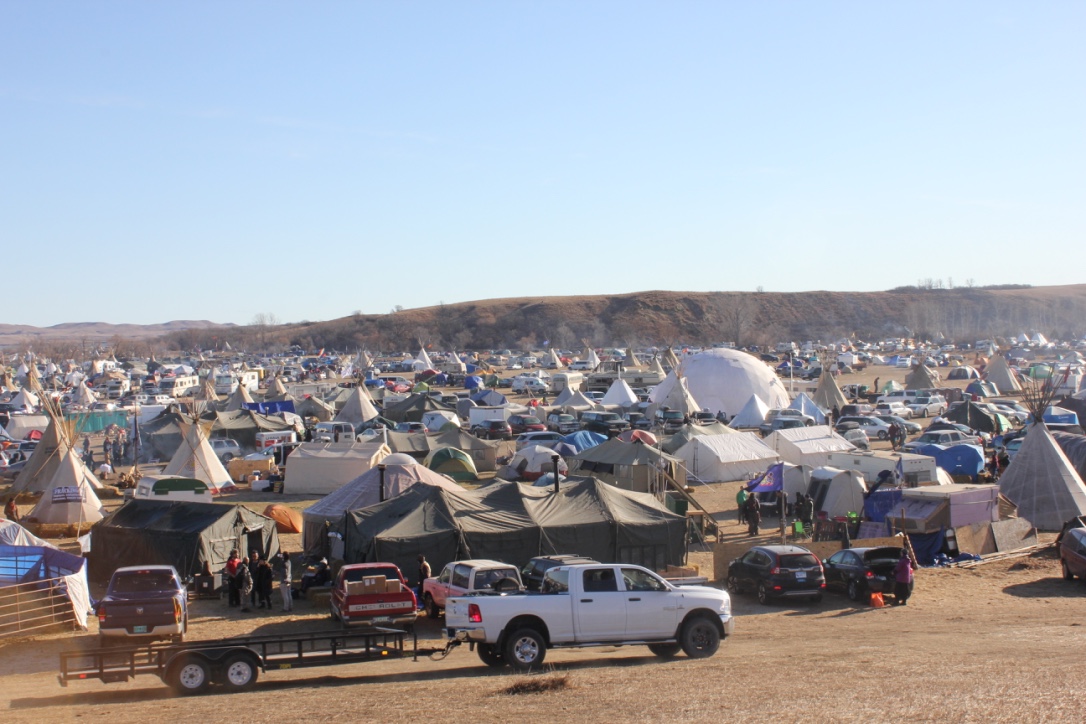

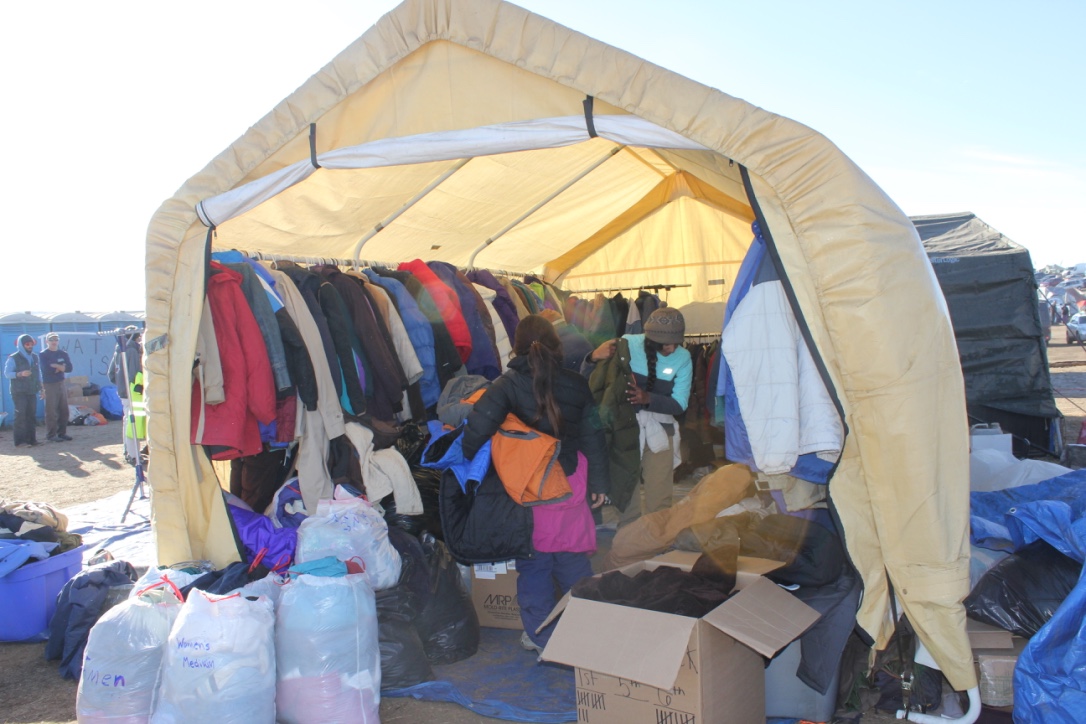
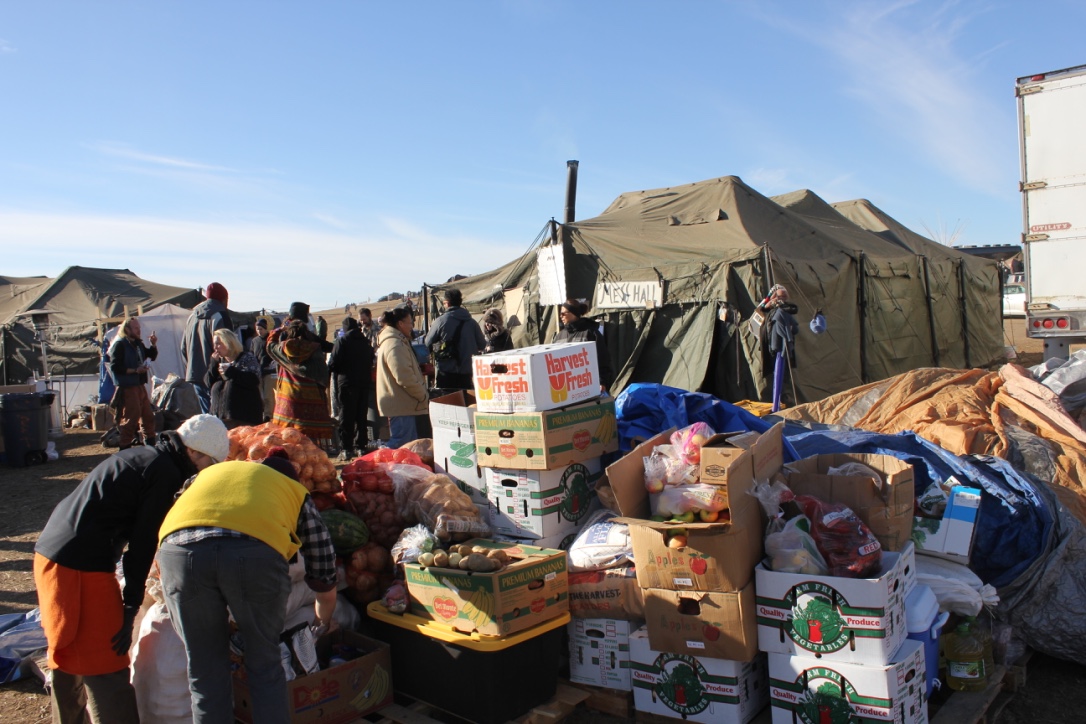
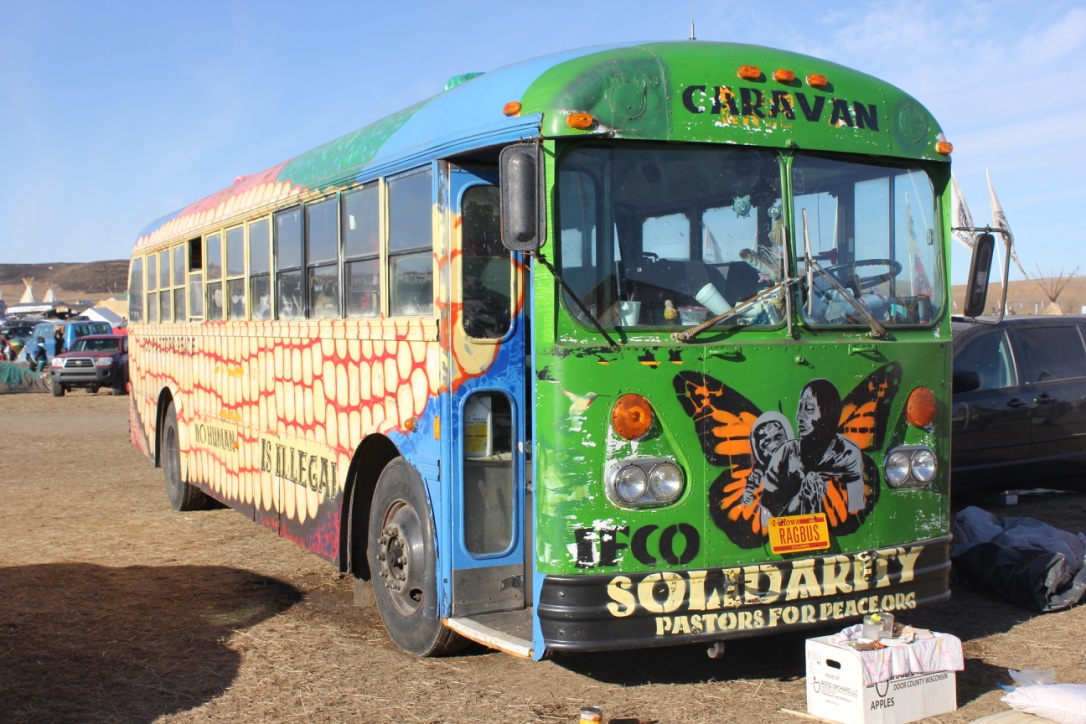


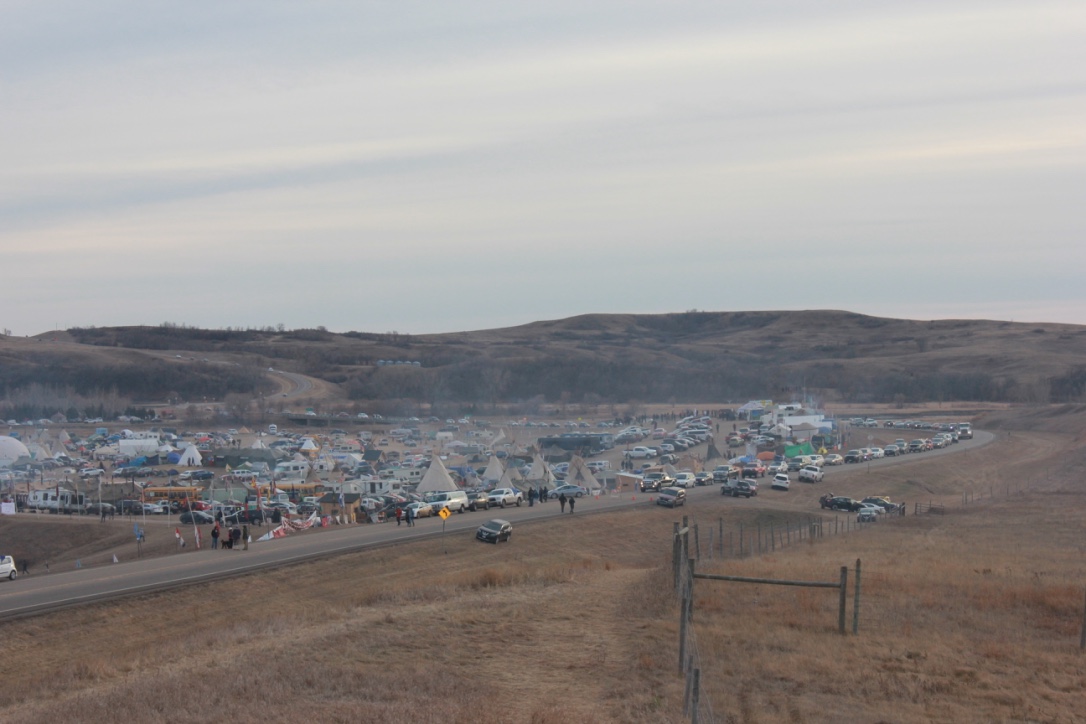

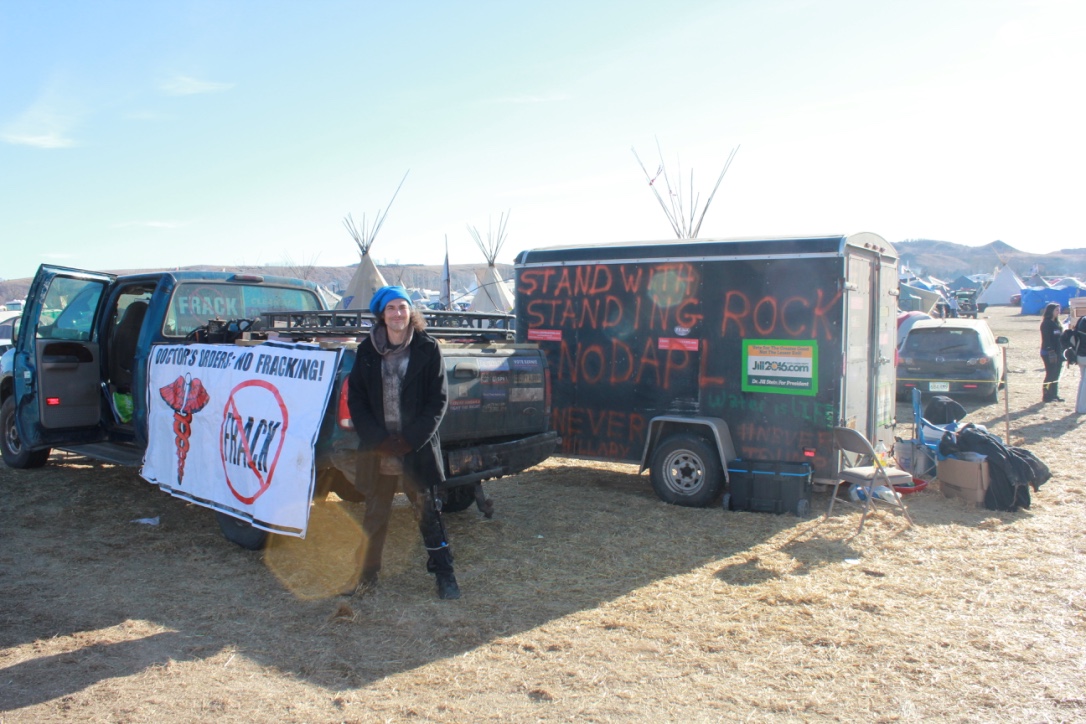
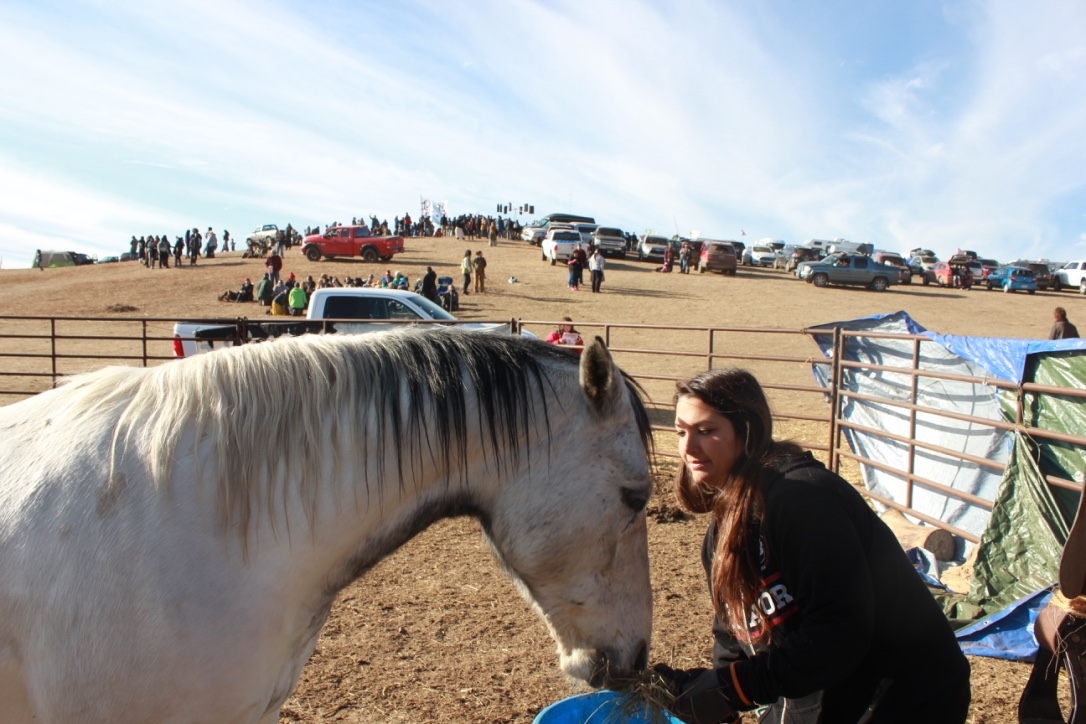
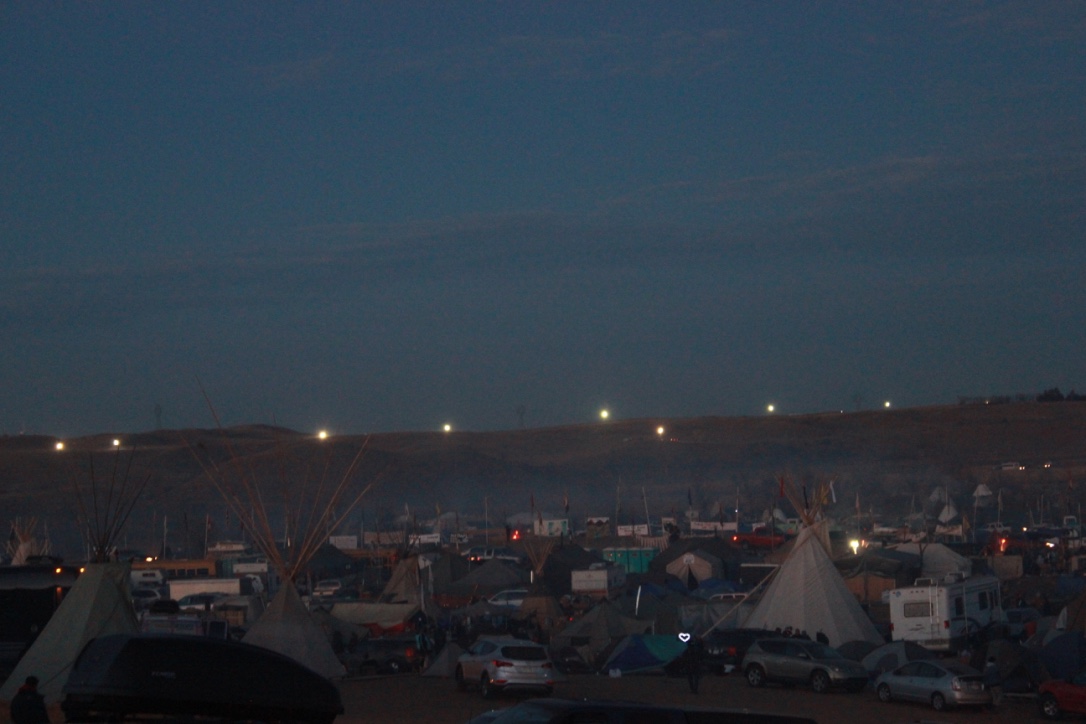
Phillip Griffin
Read MoreCooper Malin
Read MorePunx in Brooklyn
Read MoreJordan Finn
Read MoreEric Toennis
Read MoreDaniel Nichols
Read More